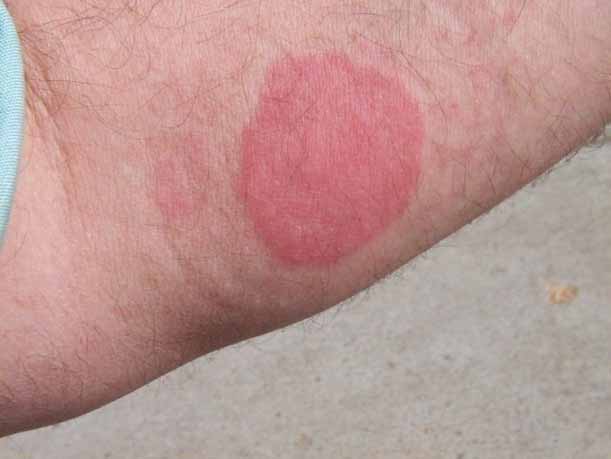Mosquito bites are an annoying rite of passage during the hot summer months. Mosquitoes can appear anywhere, but they are especially prolific in areas where there is any standing water – this might be as big as a swamp or as small as a bucket forgotten in the yard. Mosquito bites usually lead to itchiness, but some people can have serious allergic reactions to mosquito bites. Known as Skeeter syndrome, the reaction usually happens among small children, toddlers and the elderly.

What Causes Allergic Reaction to Mosquito Bites?
Those who are seriously allergic to mosquito bites are actually allergic to mosquito saliva. The polypeptides in the saliva are used to thin the blood so that mosquitoes can siphon it. It is believed that it is the autoimmune response triggered by the enzymes in mosquito saliva causes the allergic reaction. Sometimes the reaction develops instantly, while at other times it might take up to 48 hours before the reaction begins. Interestingly, because there are several different types of mosquitoes, a person might be allergic to one bite but not another. This helps explain why some people suddenly become allergic to mosquito bites when traveling abroad.
What Are the Symptoms of Allergic Reaction?
Allergic reactions to mosquito bites can present in many different ways. The most common issues are severe swelling and itching. A red lump might appear at the site of the bite, as well as at other areas of the body that are far away from the bite. There might be bruises and blisters popping up around the bite site. Sometimes individuals will have an asthmatic reaction, and might develop infections after excessive scratching. The most frightening aspect is anaphylaxis which could come very suddenly and make it difficult to breathe. Anaphylaxis is a life-threatening condition that requires immediate assistance.
Who Is at Risk for Mosquito Bite Allergy?
Some people are at a much higher risk of allergic reaction to mosquito bites.
- People who are frequently outdoors, and thus might have more mosquito bites, are considered especially vulnerable.
- People who have a still-developing immune system, such as small children and toddlers, are also at risk. So do the elderly whose immune systems might be compromised.
- People who have leukemia, AIDS, lymphoma, and other conditions that inhibit their immune system should take mosquito bites very seriously.
Mosquito bite allergies are diagnosed through a positive skin test that uses a small bit of mosquito whole-body extract. Testing should be limited to those who have a history of severe reactions; small, itchy areas after a bite that go away in a few days are not considered a severe reaction.
How to Treat Mosquito Bite Allergy
Treatment for allergic reactions to mosquito bites usually consists of supportive care in which the symptoms are managed. Oral anti-histamines, as well as oral steroids might be taken to reduce the pain, swelling and itchiness. Some medications, like Cetirizine hydrochloride, can be taken on a daily basis to help keep reactions to a minimum. Bring anti-allergy medications when you go to a mosquito-inhabited area. Any sign of anaphylaxis requires immediate medical attention.
How to Prevent Mosquito Bite
Prevention of mosquito bites is an important step to help curb the allergic reaction to mosquito bites. Start by eliminating the areas they like to use to breed, such as all standing water. Mosquitoes might be attracted to gutters, drain pipes, children’s wading pools, birdbaths, water collected in old tires, outdoor flower pots, and even fire pits that retain water after rains.
You can also make sure the screens on your windows and doors are secure, with no rips or tears. Use mosquito netting over cribs or strollers when outside. Remember that mosquitoes are most active from dusk to dawn, and make a point of being indoors during those times. Recent studies have shown that mosquitoes don’t like moving air, so staying inside under the air conditioning can keep them at bay.
When going outside, use a strong mosquito repellent that contains DEET. Other formulations that are acceptable might include lemon eucalyptus oil or icaridin. Be sure to put the repellent on every time you go outside, always about 20 minutes after you put on sunscreen. Do not use DEET products on children younger than two months, and do not use lemon eucalyptus oil on children under the age of three.
Finally, remember to treat the gear you might use outside as well. This can be done with permethrin, which is designed to be applied to outdoor clothing and gear, but not to skin. When it comes to wearing protective clothing, make sure to wear long sleeves and long pants, socks and closed-toe shoes, very light colors (mosquitoes don’t like them!) and a hat that protects your ears. Better yet, opt for a hat with netting that protects your face. Go even further to prevent an allergic reaction to mosquito bites by using preventative medication, such as a non-drowsy antihistamine, before going outside.
